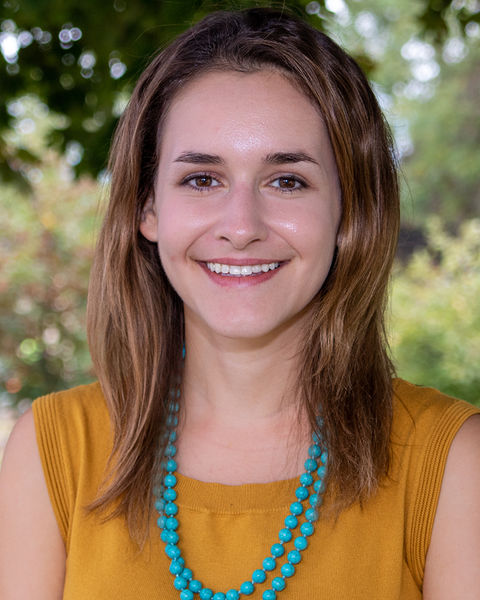
Sharon, PA 16146
Biography
Dr. Lauren Altenburger is an assistant professor in the Human Development and Family Studies program. She studies children’s social and emotional adjustment within the context of the family system. Her research has focused on better understanding the relationship between various aspects of the family system, including the coparenting relationship, or the extent to which partners support or undermine each other’s parenting strategy. She is particularly interested in how interactions within the family are associated with fathers’ parenting and, in turn, child development. Relatedly, she studies the role of children’s own characteristics in eliciting various types of behaviors from their caregivers.
Dr. Altenburger is a member of the National Council on Family Relations and the Society for Research in Child Development.
In her spare time, she enjoys running, hiking with her dogs, and biking.
Research Interests
Father-child relationships
Coparenting
Development of self-regulation
Transition to parenthood
Publications
Altenburger, L. E., & Schoppe-Sullivan, S. J. (2021). Contributions of parenting quality and coparenting relationship quality to the development of child executive functioning. Early Childhood Research Quarterly, 57, 133-143.
Altenburger, L. E., & Schoppe-Sullivan, S. J. (in press). Infant negative affect moderates longitudinal associations between maternal gatekeeping and toddlers’ social–emotional difficulties. International Journal of Behavioral Development.
Altenburger, L. E., Gugiu, P. C., & Schoppe-Sullivan, S. J. (in press). Measuring maternal gatekeeping: a Rasch analysis of the Parental Regulation Inventory. Journal of Family Studies.
Altenburger, L. E., & Schoppe-Sullivan, S. J. (2020). New fathers’ parenting quality: Personal, contextual, and child precursors. Journal of Family Psychology, 34(7), 857-866.
Zvara, B. J., Altenburger, L. E., Lang, S. N., & Schoppe-Sullivan, S. J. (2019). The role of coparenting in the association between parental neuroticism and harsh intrusive parenting. Journal of Family Psychology, 33(8), 945-953.
Altenburger, L. E., Schoppe-Sullivan, S. J., & Kamp Dush, C. M. (2018). Associations between maternal gatekeeping and fathers’ parenting quality. Journal of Child and Family Studies, 27(8), 2678-2689.
Altenburger, L. E., Lang, S. N., Schoppe-Sullivan, S. J., Kamp Dush, C. M., & Johnson, S. (2017). Toddlers’ differential susceptibility to the effects of coparenting on social–emotional adjustment. International Journal of Behavioral Development, 41(2), 228-237.
Altenburger, L. E., Carotta, C. L., Bonomi, A. E., & Snyder, A. (2017). Sexist attitudes among emerging adult women readers of Fifty Shades fiction. Archives of Sexual Behavior, 46(2), 455-464.
Schoppe-Sullivan, S. J., Altenburger, L. E., Lee, M. A., Kamp Dush, C. M., & Bower, D. J. (2015). Who are the gatekeepers? Predictors of maternal gatekeeping behavior. Parenting: Science and Practice, 15, 166-186.
Bonomi, A. E., Nemeth, J., Altenburger, L. E., Dotto, I., Anderson, M. L., & Snyder, A. (2014). Fiction or not? Fifty Shades is associated with health risks in adolescent and young adult females. Journal of Women’s Health, 23, 720-728.
Schoppe-Sullivan, S. J., Altenburger, L. E.¸ Settle, T., Kamp Dush, C., Sullivan, J., & Bower, D. (2014). Expectant fathers’ intuitive parenting: Associations with postpartum positive engagement and parental characteristics. Infant Mental Health Journal, 35, 409-421.
Altenburger, L. E., Schoppe-Sullivan, S. J., Bower, D. J., & Kamp Dush, C. M. (2014). Associations between prenatal alliance and observed coparenting behavior at 9 months postpartum. Journal of Family Psychology, 28, 495-504.
Bonomi, A.E., Altenburger, L.E., & Walton, N. L. (2013). “Double crap!” Abuse and harmed identity in Fifty Shades of Grey. Journal of Women’s Health, 22, 733-744.
Education
Ph.D. in Human Development in Family Science, The Ohio State University
M.S. in Human Development and Family Science, The Ohio State University
B.S. in Human Development and Family Science, The Ohio State University